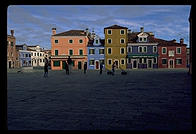
Lagoon Islands
of Venice by Philip Greenspun
This big stretch of sand protects Venice from the brunt of the Adriatic's power. It was one of the world's foremost resorts at the turn of the century and the Hotel des Bains where Aschenbach stayed in Death in Venice is still there. The Lido was also the burial ground for foreigners and Jews so there are a lot of interesting graves.
The most colorful of the Lagoon islands, the residents spend their days painting and/or decorating their houses.
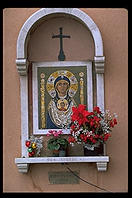
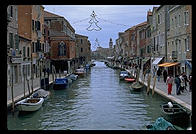 Close to Venice
and very similar in character to an out-of-the-way part of the sestiere.
Venetian authorities moved the glass furnaces to this island in 1291 and glass
making and selling is still the basis of the economy. I was fortunate enough to
be there when a real master was producing a $1200 horse (at Seguso, Ponte
Vivarini 138, tel (041) 523 69 16. Ask for Mario Rossi and tell him I sent
you.).
Close to Venice
and very similar in character to an out-of-the-way part of the sestiere.
Venetian authorities moved the glass furnaces to this island in 1291 and glass
making and selling is still the basis of the economy. I was fortunate enough to
be there when a real master was producing a $1200 horse (at Seguso, Ponte
Vivarini 138, tel (041) 523 69 16. Ask for Mario Rossi and tell him I sent
you.).
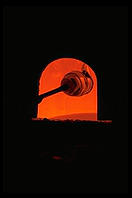
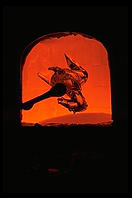
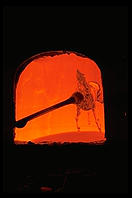
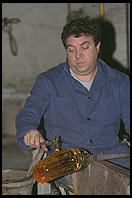
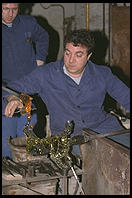
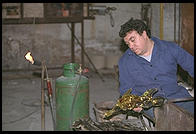
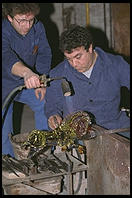
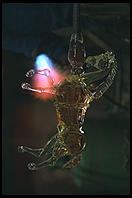
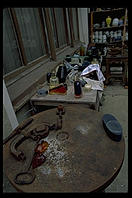
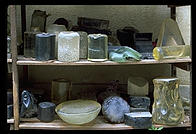
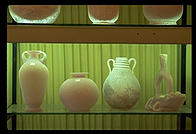
Murano also has a nice small church, the Basilica dei Santi Maria e Donato.
"That's Torcello directly opposite us," the Colonel pointed. "that's where the people lived that were driven off the mainland by the Visigoths. They built that church you see there with the square tower. There were thirty thousand people lived there once and they built that church to honor their Lord and worship him. Then, after they built it, the mouth of the Sile River silted up or a big flood changed it, and all that land we came through just now got flooded and started to breed mosquitoes and malaria hit them. They all started to die, so the elders got together and decided they should pull out to a healthy place that would be defensible with boats, and where the Visigoths and the Lombards and the other bandits couldn't get at them, because these bandits had no sea power. The Torcello boys were all great boatmen. So they took the stones of all their houses in barges, like that one we just saw, and they built Venice."
Across the River and Into the Trees (1950), Ernest Hemingway (1898-1961)
Sixty people live on Torcello today. The big attraction is the basilica, which dates from 1008, the apse mosaic (below, 13th-century), and the alleged throne of Attila the Hun (below).
There are hundreds of other islands in the lagoon, only a few of which are reachable by scheduled ACTV boats. Many of them hold interesting ruins, monasteries, or schools.